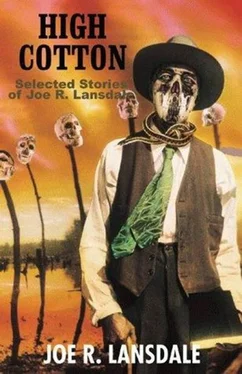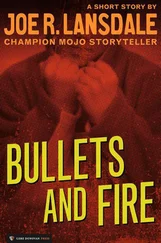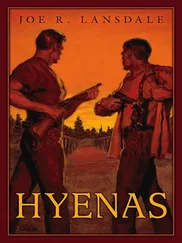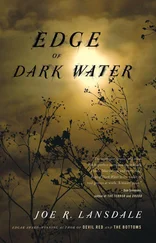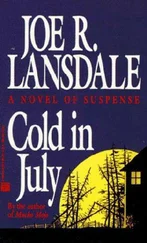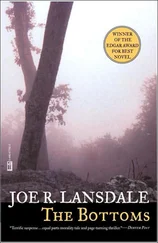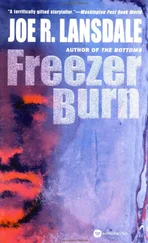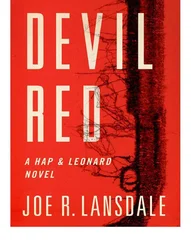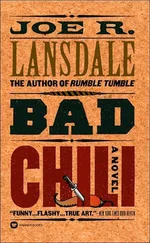High Cotton:
Selected stories of Joe R. Lansdale
For Karen, Keith and Kasey,
years of mental madness consigned to paper.
GROWING UP IN EAST TEXAS, I KNEW EARLY ON that I wanted to be a professional writer, even though I wasn't exactly sure what a professional writer was. I began to write stories at a very early age. Perhaps as early as seven, though I can't be certain of that, as family stories vary. I know that when I was nine I was seriously trying to understand how stories were told, and I even put together a book of stories, poems, and my interpretations of Greek and Norse myths. I also included, for some unknown reason, the ancient Greek alphabet that I had copied out of an encyclopedia.
When I was old enough to sort of understand what a writer did to make a living, and I began to entertain the idea seriously, I thought that I would be a science fiction writer. I read all the time, and not just science fiction, but there was a time in my life where science fiction — and keep in mind I lumped fantasy, horror, science fantasy, weird adventure, ghost stories, anything odd, under that label — was my main source of reading matter, coupled with supposedly non-fiction books about things like flying saucers, Big Foot, ghost, and Fortean activity.
When I finally began to write a true novel, it was in the Edgar Rice Burroughs vein. Somewhere, I hope, those efforts still exist. They are either in the library where my work is kept, or in my study, or, heaven forbid, I may have destroyed them. I remember thinking about it. I feel sentimental about those old pieces, and about ten years ago, when I last saw them, I took them out and was surprised to find they weren't really too bad, considering a kid, not even teenage yet, had written them.
But they were never finished. They just sort of went on and on in composition notebooks, but I didn't know how to reach a peak in the books, and then wrap them up. When I began to write novels with serious intent in my mid-twenties, I discovered I still hadn't learned that trick. The idea of novels became daunting. I decided I'd write something shorter, and in my mind easier, so I turned to short stories.
I had always read short stories, but for some reason it had never occurred to me to pursue them seriously. I had written a few, but none were any good, and I just assumed novels were where it was at. I began to review stories I had read and loved. Stories by Poe, Doyle, Bradbury, Bloch, others, and I began to read them more carefully, and I expanded my reading. I had read stories by Hemingway, Fitzgerald, Faulkner, and others of that ilk that I had enjoyed, but now I began to study them seriously. And then, I began to write.
I once spent about three months writing a story a day — no kidding. I sent each one out to several markets, and all of them came back. Over a period of time — more than three months — I probably got a thousand rejects. I kept the stories and the rejects for years, and then, when we moved from Starrville, Texas to Nacogdoches, Texas, I had a ritualistic burning of stories and rejects. A few of the rejected stories survived, and were revised later and published, and some were published in a book I did of early writings, designed for the fan of this sort of thing; a book designed primarily to show that everyone has to begin somewhere.
But, I got hooked on the short story, and pretty soon, they were all I wanted to write. They were much harder than I ever expected. In fact, harder than novels. But, still, there was less of an investment in time, and therefore I could get something to market relatively soon; I could see an end in sight when I was working on them, and I could change moods and genres rapidly. That was appealing to me, since, essentially, I have a short attention span.
I became enraptured with short stories, and no longer just science fiction. I had expanded my reading, and now I expanded the type of stories I liked to write. When I finally began to sell my stories, I found I no longer wanted to write novels. I found short stories just too satisfying.
Still, since I wanted to be a full-time freelance writer, I knew I had to eventually write novels. I almost regretted when the novels began to sell; my excuse to write short stories began to evaporate. By the early nineties I was writing fewer and fewer short stories. Some of the energy I had invested in them went into the novels, and into comic book and film scripts. It wasn't that I had lost interest in short stories, but it was as if I got up one day feeling like I had met certain goals in the short story world, and now I was ready to see what I could do elsewhere.
Short stories, and novellas, are still favorites of mine, but I have really learned to appreciate the novel. And since I get paid more for novels these days than I used to, it has allowed me to return a little more frequently to short stories.
I doubt I will ever be a full-time short story writer again. That was hard, though I did pull it off for a time. But, it wasn't exactly more than a hand-to-mouth living. Now that I can get more for my short stories, I also make more for the novels, so it's easy to see which one I give the time. Besides, I like doing novels as much as short stories now. That said, I think short stories taught me how to write tighter, better novels.
These stories are the ones that I think taught me the most. They are personal favorites of mine. I could have added a few stories to this collection, replaced one with another in some cases, but these stories are the ones I think best reflect my work.
Growing up in the South, there's an expression you hear. "He's in high cotton now." "I felt like I was in high cotton."
This is taken from the fact that in the Old South, when cotton was good, it stood rich and tall and full. It was called high cotton. If you made your living from cotton, this was a good thing. The expression has carried over to include things that have nothing to do with farming or cotton.
Short stories, for example.
I can't say that this is the best cotton grown. But in my personal field, this is the best cotton I've grown in the short form.
I hope, that as you pluck it from my field, you will enjoy the work better than those who pluck actual cotton, and I hope the product, once plucked, is satisfying.
I have been a published writer for nearly twenty-seven years now, and these stories were written in the last seventeen. They are fewer and farther between these days, but I hope that long before another twenty-seven years, there will be yet another book produced from my field, and if talent, luck, ambition, and hard work stay with me, perhaps the cotton produced will stand even higher.
Joe R. Lansdale Nacogdoches, TexasFebruary, 2000
I read an article in «GEO» magazine — a magazine I believe has come and gone — about dog fighting. It struck me as horrible and cruel. I had heard it compared to boxing, a comparison I don't buy. Boxers can choose to get in the ring or not, and they are taught how to protect themselves and there are referees. Dogs do it for the love of their masters and for something to eat. For a reward, when they lose, they are most often killed or abandoned. These dog-fighting guys don't want "losers".
I thought about that, added in another story told me by a friend. Supposedly, back in the late fifties or early sixties, there was a small town where a black man's car broke down and he was captured and made to pull a wagon around the town square, and was fed axle grease on crackers. Finally, he escaped.
Swear. That's the story. I'm not saying it's true, but it was told to me as the truth and it was given to the teller as the truth. If it did happen, I have no idea where this took place. North, South, East, or West. But it got the story wheels turning. My thoughts about dog fighting, boxing, and this supposed incident, all came crashing together, and became "The Pit." This was about 1982 or 1983. I sent it out, and no one bought it. They didn't know what the hell it was. All the standard honor markets — there were a number of them then — thought it wasn't horror, and they were probably right. Some wanted it to have a twist ending, or another ending. One editor wanted me to give it a positive spin. I wouldn't. I pulled it. It lay in a file drawer for several years.
Читать дальше
